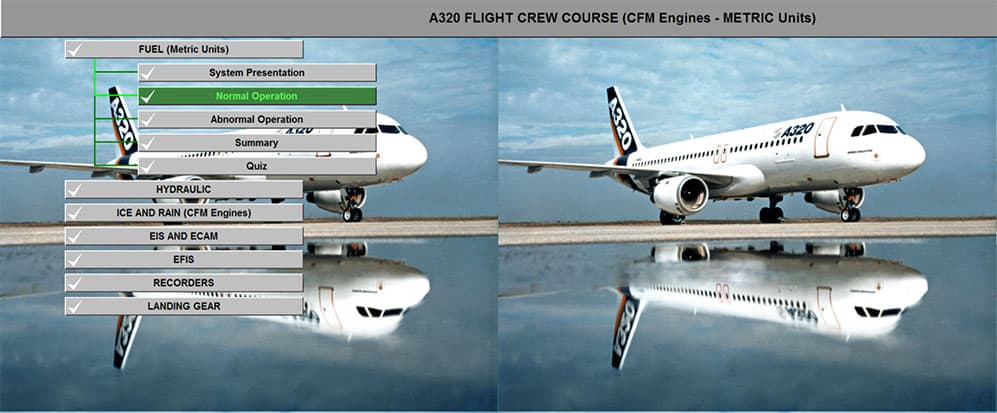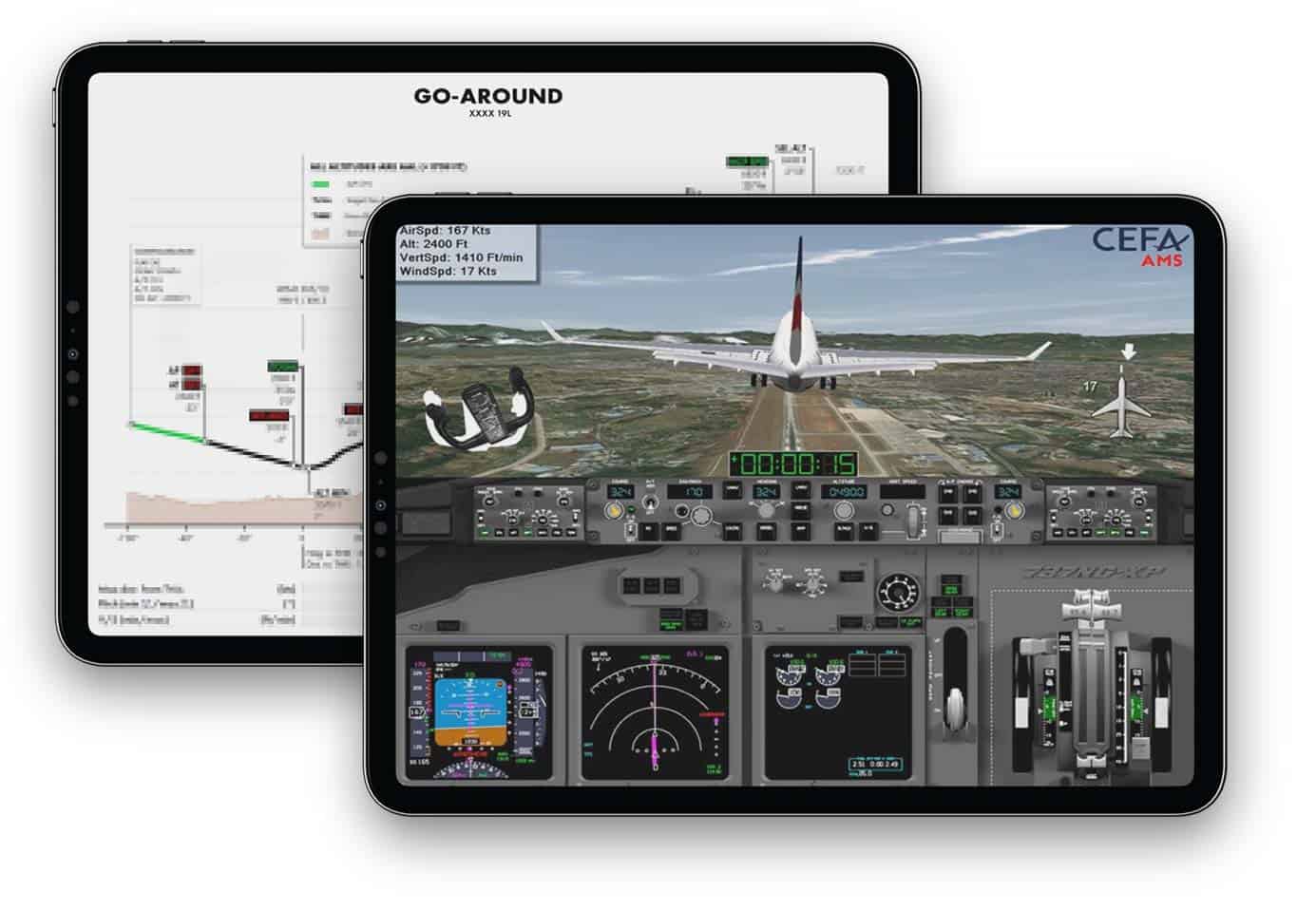An independent company with 22 years of expertise in flight data animation for Flight Safety and Pilot Training
Pilot Empowerment with Flight data
 #PilotSkills #FlightSafety #FlightDebriefing #PilotTraining
#PilotSkills #FlightSafety #FlightDebriefing #PilotTraining
“Leadership is about recognizing that there’s a greatness in everyone, and your job is to create an environment where that greatness can emerge.” (Bill Campbell “The Silicon Valley Coach”)
The environment in which pilots work is complex. Besides the technical part of the cockpit, there are the weather influences, the surrounding terrain, and environment and many other factors. Situational awareness is a key factor influencing the outcome of an event, but this must be gained by experience, by understanding own perception and what was the outcome. To enhance this gain experience, a company can empower pilots by offering them better access to their own flight data.
- How long was my landing distance? was it as I expected?
- Can I remember when I was established?
- When did the icing start?
- Was my energy management optimal?
- When did the wind change so drastically during the approach?
- Etc.
These are the type of questions that a pilot will ask himself or within the crew, to look for potential improvement. Usually, it’s difficult to forward a factual answer, as only key elements are remembered for such complex influences in a dynamical environment.
At CEFA, we are convinced that pilots equipped with the correct tool are the most valuable assets to improve safety, comfort, and economic aspects. For this, they need access data that will provide them with comprehension elements allowing a better understanding.
Traditional airline operation is quite polarized, having the pilots on one side and the flight safety department, which is watching their performances, on the other side.
This polarization could lead to some tensions and misunderstandings.
As flight safety is a common goal, it is important to make the maximum use of all potential synergy.
CEFA AMS, combined with CEFA FAS, enables a brand-new collaborative safety environment. As the pilots have access to their own data, they have a better understanding of what exactly happened during the flight, this for their own improvement, to give them more detail to fill the logbook correctly, or to enhance the precision and the quality of a report.
Operation / Training / Maintenance / Flight safety can all benefit from a pilot having access to a reliable source of information.
This leads me to emphasize the role that pilots can play in an airline besides their pure flying activity.
Who is in the best position to understand the needs and how to forward information to pilots? Most probably other pilots….
In today’s COVID situation, many pilots are under-employed, are looking for other jobs, are worried about keeping their currency valid, and are looking for solutions to maintain their proficiency. All these workforces present an underused potential for operational improvement!
Two different articles found recently on LinkedIn attracted my attention; the first one was dealing with how the pilot’s brain works, and the second one, the fact that “rusty” pilots present challenges during the recovery.
In recent studies, neuroscience researchers have found that the pilots display a different pattern of functional connectivity in their brain:
One of the findings is that “pilots tend to have enhanced cognitive flexibility compared to their non-flying counterparts”.
Consequently, some doubts can be raised about the real efficiency of some of the “online” documentation available. It has been published for a good reason, but is mostly created and managed by people that are not pilots!
Today there are so many pilots under or unemployed who are available to create, modify or adapt learning modules in a way that will certainly be better targeted, understandable, and efficient for their peers. Here lies a real potential to improve subjects that are addressed to a population having a specific way of learning and working.
Company documentation might be available on the airline intranet, such as:
- Computer-based training modules
- Topics on aviation-related issues
- Preparation items for training and checking

Screenshot of Airbus CBT program
From what I have seen in different airlines, these subjects are better than nothing, but presents some drawbacks:
- The CBT is often only already-existing training modules that have previously been performed, as they were part of the transition or former training programs
- Topics are mainly airline-specific and often not tailored for a selective fleet
- These data have been developed by several departments in the airline, by the airplane manufacturers or other sources
Only a few opportunities for home training are offered by the airlines to facilitate the development at a personal level. Access to own flight data is barely possible; usually only via a sometimes uncomfortable demand to the flight safety department.
At CEFA, we are convinced that to keep the knowledge, to improve and perfect themselves, the pilots must have documentation and data that are published in an approach that fits their way of analysis and learning technic, etc.
Offering training solutions and addressing issues is today extremely important as there is a worldwide consent: pilots’ skills are eroding!
“Rusty Pilots Making Flying Errors Is Next Aviation Headache”
https://www.bloomberg.com/news/articles/2020-11-30/grounded-pilots-out-of-practice-spark-airline-safety-fears explains some of the main problems. By not flying, not being immersed in the highly demanding and challenging “real-time environment” of the cockpit, skills are eroding, mental processes are slowing down and once back in the cockpit, processes that were routine suddenly need much more time and energy to be performed correctly.
Here are some extracts from the article:
“Regular flying keeps your mind in the cockpit, said Mohan Ranganathan, an aviation safety consultant. Being away from flying for such a long time brings in some complacency. Add the loss of income, uncertainty about jobs, or the airline’s future, which brings in additional stress. With an increase in stress levels, proficiency drops…it will take about a month of regular flying for pilots to get their confidence and skill levels back, along with lots of training”.
“When you are not focused, decisions can get delayed…”, ” Just a few seconds can make a difference between a safe flight or an accident”.
How to deal with such problems using existing new features?
Besides the published “online” documentation, the availability of real flight data at a pilot level is a great supplementary way to keep operational knowledge closer to reality. One of CEFA AMS customer has offered his pilots the possibility to access own data collected during flight, even at home after months.
Using their tablet application, these pilots can review regular sequences of their flights, or analyze in “real-time” their cockpit environment, replay mental processes that usually require a flight simulator.
Interesting is also the fact that, in this airline, the demand for post-flight animation has increased for the pilots that restarted flying. This is a credible sign of interest in a service offering access for a better understanding of own performance without any company pressure or fear of exposure (as it is fully anonymous).
Solutions exist and many ways will lead to improvement
For the first time in years, there is availability among the pilots, the operations, and the training departments. Such an opportunity must be exploited. It’s the optimum timing for improvement and for looking at more efficient solutions to keep the proficiency, knowledge, and training at their highest levels. It’s also time to look for future improvements and better solutions. Sooner or later, such an opportunity will again be impossible due to the lack of time available of free capacity, as this was the case in the previous years.
Visit our website to get more information about CEFA AMS or contact us.
Click here to have a look at previous publications dedicated to the training under our blog.
Visit our new website: https://www.cefa-aviation.com



CEFA AMS, the experience accelerator…
Runway excursion